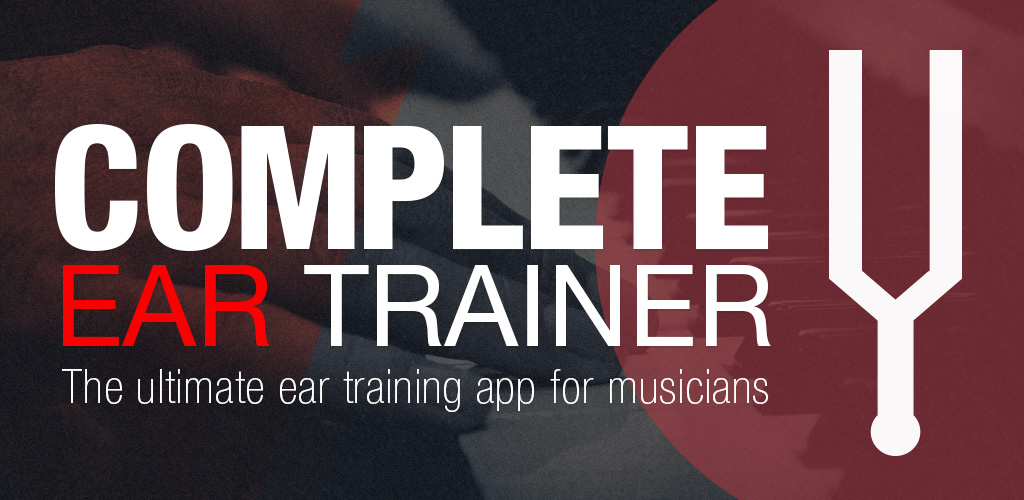
#Ear trainer for indian music how to
The first step is to learn how to sing the major scale. Once you find your foundational pitch, you can expand beyond and begin to build your internal pitch map. Expand beyond the foundation The major scale Sing it as many times as you can every day and match yourself with the piano or with a chromatic tuner. The trick is to find this comfortable pitch and commit it to memory. Your pitch might be A3, middle C, or something else. I found I could reliably and comfortably sing this note at any time of day. For me, this pitch is C3, the C one octave below middle C. Don’t force it and don’t try to do anything in particular except make the most comfortable sound you can. Sit relaxed at the piano and sing or hum the most comfortable and easy note for your voice. The easiest way to develop relative pitch is to choose one note and memorize it.

Why don’t you know how to recognize middle C by ear? Or a major or minor triad? How to develop relative pitch You only know what the color red is because someone told you about red, or blue, or yellow, or any other color. I teach my students to analogize pitches to color. By building a foundation, you can relate all pitches to that foundation, and build an internal map of sounds for yourself. Relative pitch is the ability to hear pitches and chords in relation to one another. Most musicians do not have this ability and not all those who do ever use it for anything extraordinary.įor the rest of us, we work to develop our relative pitch. Have you ever met someone with perfect pitch? Perfect pitch is the ability to hear literally any sound and instantly recognize its pitch and tuning from the notes on a piano to the creak of a door, to the hum of an airplane. There are many ways to go about developing excellent aural skills. Training your ears is not a terribly difficult task, but like all musical skills, takes dedication and consistent effort.
#Ear trainer for indian music trial
Start free trial How do I develop my ears? If you are enjoying these posts, remember that Skoove offers a free, 7 day trial of wonderful, interactive piano lessons designed to improve your piano playing fast! With over 400 unique lessons available from beginning to advanced, access to one on one support from Skoove’s talented piano instructors, and an Artificial Intelligence program that listens and helps you improve in real time, what more could you possibly dream of? Additionally, other musicians will enjoy playing with you more because you will be genuinely listening to them and just hearing them. You will become a better player, develop a deeper relationship to the music you study, the music you listen to, and sounds around you in general. Practicing ear training exercises will increase all aspects of your musicianship. No credit card details required Start your piano journey now! What is ear training?Įar training, or aural skills, is the practice of learning to identify pitches, rhythms, chords, and other music theory concepts by ear.

So I practiced and practiced and practiced some more. I realized how much harder I would have to work to catch up with my peers who had somehow been exposed to ear training already. Needless to say, I was caught off guard and failed the task miserably. The professor walked in the door, sat down at the piano, asked everyone to take out a piece of staff paper, and notate the melodies that he would play on the piano. Aural Skills is a synonym for ear training. When I arrived at music school, the first class was called Aural Skills. Consequently, my reading, technique, and theory skills were phenomenal by the age of 14, but I was missing a key ingredient. When I was a young music student, none of my teachers mentioned ear training. Your skills as a musician will increase by leaps and bounds once you begin to consciously train your ears.Īt one time, I did not know the first thing about ear training. This superpower is called ear training and is a musical skill that you should practice just as much as you practice your technique, music theory and note reading, and repertoire. Are you one of the millions of musicians baffled by another musician’s ability to pick out notes, chords, and even entire songs apparently out of thin air? Does the phrase “play it by ear” make you slightly sweaty and a little anxious? Do you wish you had the seemingly magical ability to learn your favorite songs just by hearing them?


 0 kommentar(er)
0 kommentar(er)
